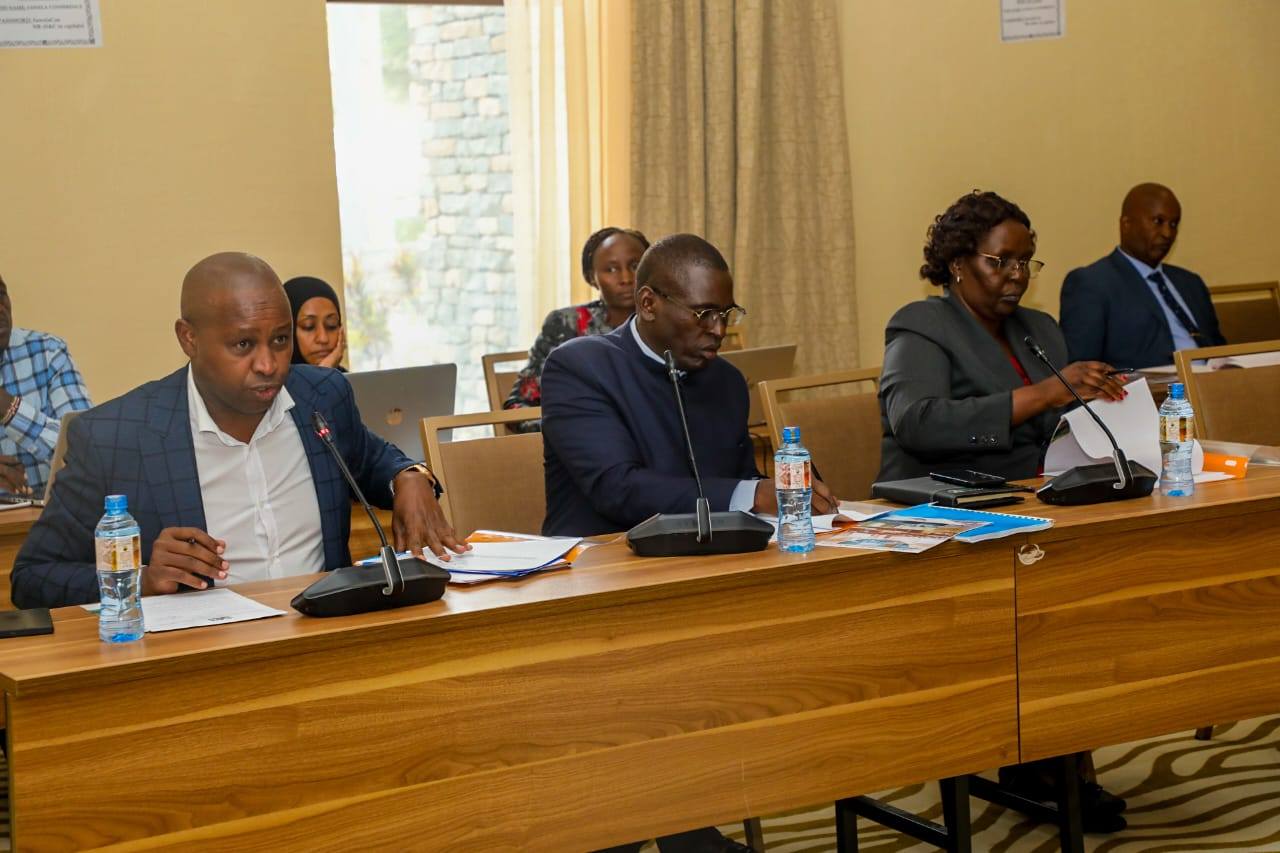County governments have resolved to aggregate Small and Medium Enterprises (SMEs) into viable cooperative societies in a bid to grow the country’s economy through the bottom-up model.
This decision was agreed upon during the meeting held recently at a Mombasa hotel to discuss collaboration by county and national governments in strengthening the Cooperative sector as a vehicle to stimulate the economy.
The meeting between the Council of Governors (CoG) and Co-operative and Micro, Small, and Medium Enterprise (MSME) Development and Cabinet Secretary (CS) Simon Chelugui was also attended by key stakeholders in the Cooperative sector.
“Ministry of Co-operatives and MSMEs together with the Council of Governors commit to working together to grow the Cooperative sector in line with the bottom-up approach to growing the economy as envisioned by the President,” read part of the resolution document seen by Sacco Review.
The document was signed by Chelugui and Bungoma Governor Ken Lusaka who is the Chairman of Agriculture, Livestock and Cooperatives Committee in the CoG.
It is estimated that there are over 7.4 million MSMEs in Kenya employing more than 15 million people and contributing about 40 percent to the national Gross Domestic Product (GDP).
In a move to boost the small business sector, President William Ruto launched the Hustler Fund on November 30, 2022, in an effort to provide State-backed concessional loans to small businesses that have struggled to access financing from mainstream banks.
Last year, Cooperative Commissioner David Obonyo urged Saccos to tap into the SME market, warning that relying on the check-off system is no longer tenable.
According to Obonyo, most Saccos are employee-based that depend on a check-off at the end of the month, thus cutting out a bigger percentage of Kenyans in informal employment.
He emphasized the need for Saccos to come up with products that are SME-oriented and facilitate the growth of the businesses.
During the meeting, the ministry also committed to establish a directorate to spearhead the Cooperative transformation agenda in line with the bottom-up model; with the county and national governments agreeing to jointly develop and support the strategy.
It was also agreed that both the ministry and CoG will collaborate on fast-tracking the enactment of the draft Co-operative Bill which will create a legal framework that will guide sector development and regulation. The Bill was introduced in the last Parliament but never sailed through.
They also agreed to fast-track the amendment of the Sacco Societies Act to provide for shared services and a central liquidity facility.
Lusaka lauded the move, saying the Cooperative movement has a huge potential in creating jobs and driving the necessary growth for citizens.
He noted that some of the challenges being experienced in this sector are a result of outdated laws and practices which need to be changed.
“There is a need to review the Sacco Societies Act in its entirety to ensure it is aligned to the Constitution of Kenya 2010 and recognizes the role of County governments,” said Lusaka.
The 2020 Cooperative Bill was to amend the Cooperative Societies Act, No. 12 of 1997, so as to align it to the Constitution of Kenya, 2010 by setting out the functions of the national and the county governments in relation to governance of Cooperative societies.
The organization and the role of Cooperative societies in the economy of the country necessitates that the national government plays a role in their governance.
The Bill wanted to provide that governance of primary Cooperative societies be overseen by county governments while the national government to be responsible for national policy and for the apex Society and Cooperative unions.
The other key issue the Bill proposed is the creation of a Nomination Committee, where every Cooperative society will have a committee that will vet the competencies and suitability of persons who want to vie for elective positions, be it in the Board of Directors or supervisory committee.
Other resolutions passed during the meeting include a commitment to allocate adequate financial resources towards the Cooperative sector, and developing a framework for inter-governmental coordination and consultation in accordance with the Inter-governmental Relation Act.
It was also agreed that county governments take stock of Cooperatives in their respective counties, including their financial viabilities within six months and share them with the national government for collation.
Further, the two levels of government agreed to develop a framework for induction, training, and capacity building of Cooperative technical staff of county governments, leaders, and managers of Cooperatives; and further, build the capacity of various value chains to ensure growth.
By Roy Hezron
Get more stories from our website: Sacco Review
Kindly follow us via our social media pages on Facebook: Sacco Review Newspaper for timely updates.



